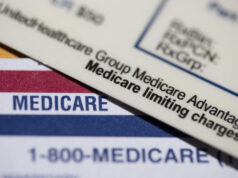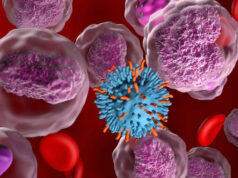
Childhood and teen obesity in America has gotten so out of hand that it’s been labeled an epidemic. Some people feel that this language is a little strong or misleading, but it doesn’t take a particularly observant person to notice the staggering increase in obese children and teenagers we’re seeing year after year. While it’s easy to point the blame at schools, parents and the children, themselves, one thing about the trend is clear—it needs to be reversed.
If you are the parent of an obese teen, then you need to be the one to take responsibility for helping him/her lose the unhealthy extra weight.
Teen Obesity is a Real Problem
There are some people who argue that obesity isn’t much of a problem. These people admit that more and more teenagers are obese today than ever before, but they feel obesity itself isn’t a particularly dangerous health risk. However, there is evidence that obesity is very unhealthy.
Obesity causes a lot of problems, including an increased risk of heart disease and heart attacks, increased blood pressure, problems with both locomotion and breathing, sleep problems (including sleep apnea), and a greatly increased chance of getting diabetes. It also leads to social and self-esteem problems, especially in children and teenagers.
People who believe and argue that these physical and emotional issues aren’t very serious are lying to themselves.
Where Obesity Comes From
There are people who argue that obesity is determined entirely by genetics. They argue that some people are just naturally obese. While it’s obvious that some people have a predisposition towards obesity and others don’t, it is beyond irresponsible to claim behavior isn’t a contributing factor.
Numerous behaviors contribute to obesity, but the number one reason why people are obese relates to their eating habits—how much they eat and what sorts of foods they are eating. Highly processed and artificially produced junk foods are disastrous to children’s health, messing up their hormonal balance and filling them up with empty calories that translate quickly and easily into extra body fat. Most obese teenagers are overfed and undernourished. Your teenager doesn’t need to be a binge eater for diet to be the main determinate of his/her obesity. Body fat accumulates just as effectively when large quantities of junk food are consumed over the course of the day.
A lack of physical activity is another huge determinate of obesity. Physical activity doesn’t have to mean structured and intense exercise. It can mean walking instead of driving and standing instead of sitting. Teens don’t have to hit the gym five days a week to stay lean, but they do have to become more physically active.
Reversing Teen Obesity
For most teenagers, reversing their obesity requires nothing more complicated than reversing the two aforementioned major behavioral problems. If you clean up your teenager’s diet and get him up and moving a lot more, he will lose weight. It’s not easy, but it is simple. Some teenagers will lose the weight faster than others, due to genetic propensities, but all will lose their extra body fat in time.
It’s important that you don’t attempt to completely change all your teenager’s behaviors in one go. That kind of 180˚ shift is likely to fail, as it is too overwhelming for anyone to completely turn their life around overnight. But if you start small, by making one meal of the day healthy or by taking a 15 minute walk with your teen, than you are likely to start the weight-loss snowball rolling in the right direction.
By Lori Boxer, Director of Weight No More Diet Center, with offices in Brooklyn, Long Island and New Jersey.



